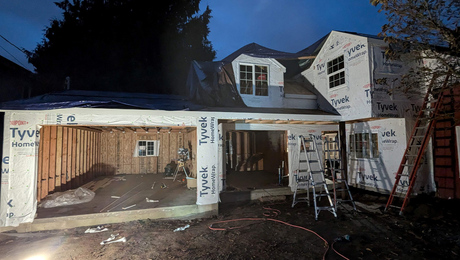What should we use……………..?
First, what is cPVC? Something about insulating properties???
And out of the three whats the +/-‘s
—————————————————————————–
“Have you seen my baseball?”
What should we use……………..?
First, what is cPVC? Something about insulating properties???
And out of the three whats the +/-‘s
—————————————————————————–
“Have you seen my baseball?”

The FHB Podcast crew takes a closer look at an interesting roof.
"I have learned so much thanks to the searchable articles on the FHB website. I can confidently say that I expect to be a life-long subscriber." - M.K.
Get home building tips, offers, and expert advice in your inbox
Fine Homebuilding
Get home building tips, offers, and expert advice in your inbox
© 2024 Active Interest Media. All rights reserved.
Fine Homebuilding receives a commission for items purchased through links on this site, including Amazon Associates and other affiliate advertising programs.
Get home building tips, offers, and expert advice in your inbox
Become a member and get instant access to thousands of videos, how-tos, tool reviews, and design features.
Start Your Free TrialGet complete site access to expert advice, how-to videos, Code Check, and more, plus the print magazine.
Already a member? Log in
Replies
First things first: what application are you going to use it for?
A possible fourth option, Pex tubing.
I think you need to get a good book from Taunton about plumbing.
Jon Blakemore
RappahannockINC.com Fredericksburg, VA
I can't afford anymore Taunton books LOL
The application would be water lines for the house, in the south.
Currently they are "lead" pipes. -----------------------------------------------------------------------------
"Have you seen my baseball?"
Are they "lead" pipes or lead pipes? If the latter, they are quite dangerous to drink water from. Even handling them you should wear gloves and wash your hands afterwards.
Unless you have corrosive water, copper will be the most durable and long lasting of the three you mentioned. PVC is only for cold water (not above 140°F). CPVC can handle corrosive water, is good up to 180°F, and is easier for an amateur to work with. But, threaded connections (such as between the CPVC pipe and a brass valve) can come loose over time, especially on hot water where you have thermal cycling. There are adapter fittings to connect plastic to metal which you should use if you choose to go with plastic which are better than threaded connections.
PEX is fairly new to this country and I haven't worked with it, but it has an excellent reputation.
Edit: Oh, and about insulation, copper will cool faster and sweat more than plastic, but you should insulate hot water pipes throughout the house and cold water pipes if you live in a humid climate, so it doesn't matter anyway.
Edited 6/15/2005 6:09 pm ET by WAYNEL5
Go to "mountainviewsupply.com and check out the Manabloc and pex system.
I just installed the manifold and pex lines in my new house. I'm sold.
It is easy and inexpensive and Mountain View Supply had geat service and
expertise. I ran the pipe in the 3 bath room house in about 5 hours.
Edited 6/15/2005 7:07 pm ET by 5brown1
Here is an idea... Match your material to the price of the house.. My plumber does PEX in lowend jobs, cpvc in mid end, and copper for people with deep pockets.
pex: pluses - easy to work with and less expensive. Also has a side benefit of the fact that is normally will not burst if exposed to freezing weather on an intermittent basis. minus - my plumber says that since the fittings go inside the pipe, water flow is restricted.
CPVC: plusses - easy to work with. a little more expensive. better water flow. Not as freeze tolerant.
Copper: most expensive but some people just gotta have it.
Thanks for all the input!!!
Exactly the bits of information I needed.
We're subbing out the plumbing rough-in and this latest candidate mentioned cPVC to me. He said for our job it would be what he would use. Since our job is middle of the road from a $$$$ perspective, sounds like he was right on. He just may get this job.
I'll check out the weblink you guys provided as well just to get more informed.
-----------------------------------------------------------------------------
"Have you seen my baseball?"
For CPVC, you must use special expansion fittings when transitioning to metal, particularly on hot lines. The fittings are rather expensive. The stuff is relatively brittle, so it has little tolerance for physical abuse. Not an issue for runs hidden in a wall, but something to consider. It has been reported by some that it gets more brittle with age, but I have not observed this firsthand. I have seen it deteriorate in sunlight. Some folks claim that leaching of chemicals from hot CPVC pipes is harmful, but I'm skeptical.
PEX is much tougher, and bends for far fewer joints. The labor savings might pay for the material. Disadvantages include; will break down if exposed to UV (as with CPVC), and it is not self-supporting for horizontal runs.
Copper is generally an excellent material, but under acidic water conditions, it would be the least durable of the 3.
If it were me, I would spring for the PEX over the CPVC for the long haul.